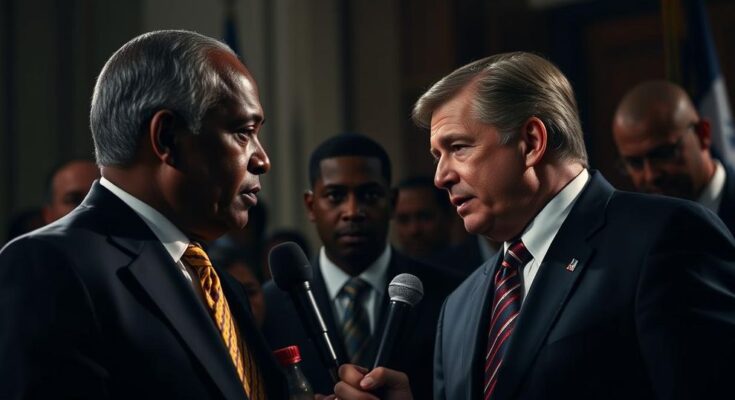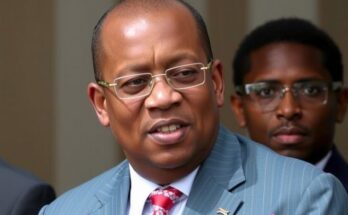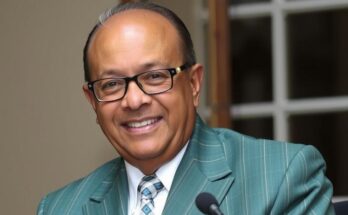A standoff has emerged within Haiti’s Transitional Presidential Council as council members demand the removal of Foreign Minister Dominique Dupuy over her handling of relations with the Dominican Republic, particularly regarding deportations of Haitians. Prime Minister Garry Conille has resisted these demands, sparking internal conflict. This scenario raises questions about political authority and governance amidst a humanitarian crisis in Haiti.
In recent developments concerning the transitional governance of Haiti, an internal conflict has arisen within the ruling presidential council. Members are calling for the dismissal of Foreign Minister Dominique Dupuy due to perceived inadequacies in her handling of Haitian-Dominican relations, particularly regarding the Dominican Republic’s mass deportation of Haitians. On Tuesday, these council members expressed their lack of trust in Dupuy and formally requested Prime Minister Garry Conille to remove her from office. However, Conille has resisted their demands, leading to a significant standoff among leadership. Council President Leslie Voltaire asserted the council’s legal authority to terminate Dupuy’s position and indicated that they would boycott council meetings until she is removed. In contrast, Conille highlighted Dupuy’s commendable contributions to the government, including securing military resources and fostering international support against the Dominican deportations. He pointed to the constitutional framework that separates the powers of the presidency from those of his role, maintaining that he would not acquiesce to the council’s wishes. Despite the tensions, Dupuy remains committed to her position, voicing her openness to collaborate with government officials for the betterment of Haiti amidst the ongoing humanitarian crisis. This judgment clash raises pertinent questions about the governance structure in the absence of a functioning parliament and the management of Haiti’s foreign policy.
Haiti is currently navigating a treacherous political landscape marked by tensions with the Dominican Republic, primarily due to its aggressive deportation policy towards Haitian migrants. The Transitional Presidential Council, which was established recently, is grappling with internal power dynamics that complicate ministerial oversight. The foreign minister’s role is critical as it aligns with broader national interests and international relations, particularly in areas affecting human rights and diplomatic efforts. The ongoing conflict also underscores the lack of clarity in the separation of powers within the transitional governance framework.
The demand for Foreign Minister Dominique Dupuy’s dismissal highlights an internal conflict within Haiti’s presidential council related to foreign relations, particularly with the Dominican Republic. While council members assert their authority to remove Dupuy due to her handling of sensitive immigration issues, Prime Minister Garry Conille has defended her performance, citing her successful initiatives. The situation remains fluid, reflecting deeper issues within the transitional governance structure amid Haiti’s ongoing humanitarian and political challenges.
Original Source: www.miamiherald.com




